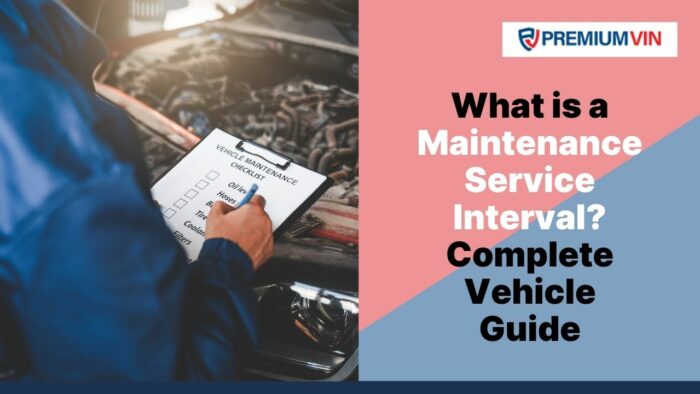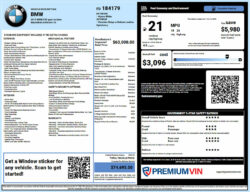A maintenance service interval is the crucial total time between each vehicle service and inspection. Regular intervals are vital to maintaining your vehicle’s performance and longevity.
This interval can be calculated based on the number of days. However, most car users have found that measuring the service interval based on odometer readings or the operated engine hours is more efficient.
A good maintenance culture serves the vehicle’s and its owner’s general interest in the long term. Maintenance can be like older staff training new staff. With such continuous training, there will be no labor shortage. Likewise, a well-maintained car will likely not run into a severe breakdown.
Having and following a mileage-based maintenance schedule has been found to reduce costs in the long term and prevent car owners from incurring severe expenses.
READ ALSO: Is the Used Car Market Going to Crash Soon
Why Regular Maintenance Intervals Are Important
Extend the lifespan of equipment: As with the machines and the systems, they are best used when maintained and tended to frequently. It is in this respect that minor injuries are given an opportunity to be corrected, which otherwise would lead to the frequent replacement of the equipments, hence will be expensive.
Improved efficiency and performance: By so doing one is able to ascertain that all aspects are in the best condition as they can be considering the prevailing circumstances. This translates to increased efficiency as you travel in your car, pay your electricity or bills and usage of any machine you depends on.
Safety first: Some of the equipment can at times develop some issues which may be dangerous to the users. This means that frequent works, particularly those involved in the inspection of the items should be done in order to detect problems that could have otherwise lead to several mishaps and accidents.
Peace of mind: This provides a form of comfort knowing that the machine you will be using out on the track in performing as it is supposed to. It can be used for focal areas such as using it or running a business without concerns regarding rapid deterioration.
To sum up, it is can be stated that organizing fixed service time is one of the effective preventive investments. It is a preventive measure that also saves you the time, money as well as the inconveniences of having to deal with such issues in the future.
READ ALSO: How can i Find my Audi Window Sticker
General Mileage-Based Maintenance Guidelines
Although maintenance requirements can differ based on your car’s make and model, here are some general recommendations for common mileage-based maintenance tasks:
Air Filter Replacement: Generally, the engine air filter should be replaced every 15,000 to 30,000 miles, but always consult your owner’s manual for specific guidance.
Spark Plug Replacement: Spark plugs often require replacement every 30,000 to 100,000 miles, depending on the type of spark plugs used in your vehicle.
Timing Belt: If your car has a timing belt (as opposed to a timing chain), it may need replacement between 60,000 and 100,000 miles.
Coolant Flush: Maintenance of the cooling system, including coolant flushes, is typically recommended every 30,000 to 60,000 miles.
Oil Changes: Engine oil and oil filters should be changed every 3,000 to 5,000 miles. However, some modern vehicles and synthetic oils allow for intervals of 7,500 to 10,000 miles.
Tire Rotation: Rotating your tires every 6,000 to 8,000 miles helps ensure even wear and prolongs their lifespan.
Brake Inspection: It’s advisable to inspect your brakes every 10,000 to 15,000 miles or as recommended by your vehicle’s manufacturer.
With Detailed Vehicle History, you can easily obtain a detailed service and maintenance schedule for any vehicle by mileage. You can also get specific details for your particular vehicle by using the VIN number.
Steps to get a car maintenance schedule by mileage or with Premium VIN
The easiest way to get car maintenance schedules is by following these steps:
- Sign Up and create an account with Premium VIN.
- Once your account has been created, Sign in to your account.
- On your dashboard, select “Tools.”
- Next, click on “Tools.”
- You will be provided a form to fill out. Enter the VIN of the vehicle of interest and the correct odometer reading.
- You will instantly be provided with the car maintenance schedule by mileage/time, including the services and upcoming issues assigned by the vehicle.
The OEM maintenance schedule Premium VIN provides for cars is vital in ensuring your vehicle’s performance, safety, and longevity. Combining mileage and time-based maintenance offers a comprehensive approach to car care. Adhere to this schedule to enjoy trouble-free driving and protect your warranty coverage.







